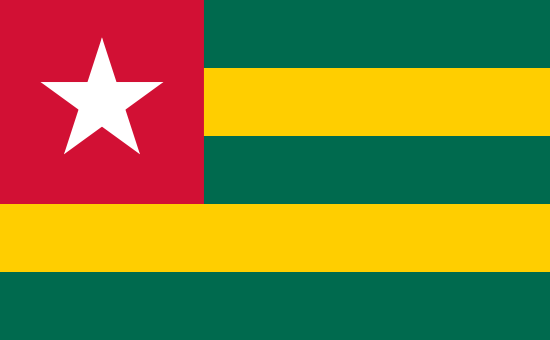
Health Insurance in Togo, Africa
Information expatriation
Capital City: Lomé
Total area: 56,785 km2
Population: 6,585,000
Money: Currency Converter
Time Zone: List of time zones by country
Calling Code: +228 XXX
Practical Information:
Health Product: Travel Insurance and Health insurance
Health Insurance information and Sanitary Risk: World Health Map
BLOG: Expat Health insurance Information
Here is a brief description of the healthcare system in the country:
· Togo has a mixed public-private healthcare system intended to provide universal coverage to its population.
· It is primarily public and funded through government expenditures as well as out-of-pocket payments by citizens.
· Healthcare is delivered via public hospitals, health centers, and clinics located across the country though infrastructure and staff shortages exist.
· Primary care is largely focused on maternal/child health and vaccinations. Referrals are required to access specialized care.
· Larger public hospitals in urban centers offer more comprehensive services but quality varies significantly.
· Private practice and insurance play a smaller role due to cost but are growing options for those who can afford them.
· Key health challenges include malaria, HIV/AIDS, neonatal/child mortality, malnutrition, and tropical diseases.
· Geographic and economic inequalities impact access disparities between rural/urban and poorer/wealthier populations.
· Overall indicators are worse than average for sub-Saharan Africa despite recent improvement efforts and international aid.
· Ongoing initiatives aim to decentralize the system, reform financing, expand insurance coverage, and improve capacity/resources.
Here are some key health considerations for expatriates living in the country:
· Purchase comprehensive international medical insurance including medical evacuation coverage prior to arrival.
· Stay up-to-date on routine vaccinations and boosters for diseases like hepatitis A, typhoid, yellow fever, meningitis, etc.
· Malaria is highly endemic - take anti-malarial medication as prescribed and use nets, repellent, and long clothing in high risk areas.
· Only drink bottled, boiled or treated water and be cautious of raw fruits/veggies unless peeled. Diarrheal illness is common.
· Medical facilities outside major cities have limited capabilities - be prepared to travel for serious care needs.
· Bring extra supplies of any prescription medications plus copies of valid prescriptions.
· Air pollution and traffic safety are concerns - use masks if needed and drive defensively.
· Stress from cultural adjustment can impact health - maintain a strong support system and self-care.
· Learn some basic French/local language phrases for communicating with doctors.
· Register with international medical clinics upon arrival and get referrals for care as needed.
